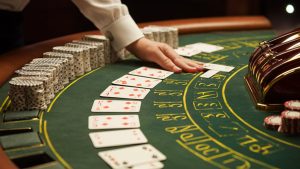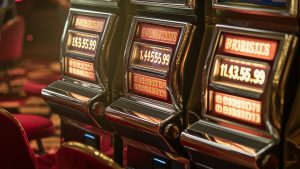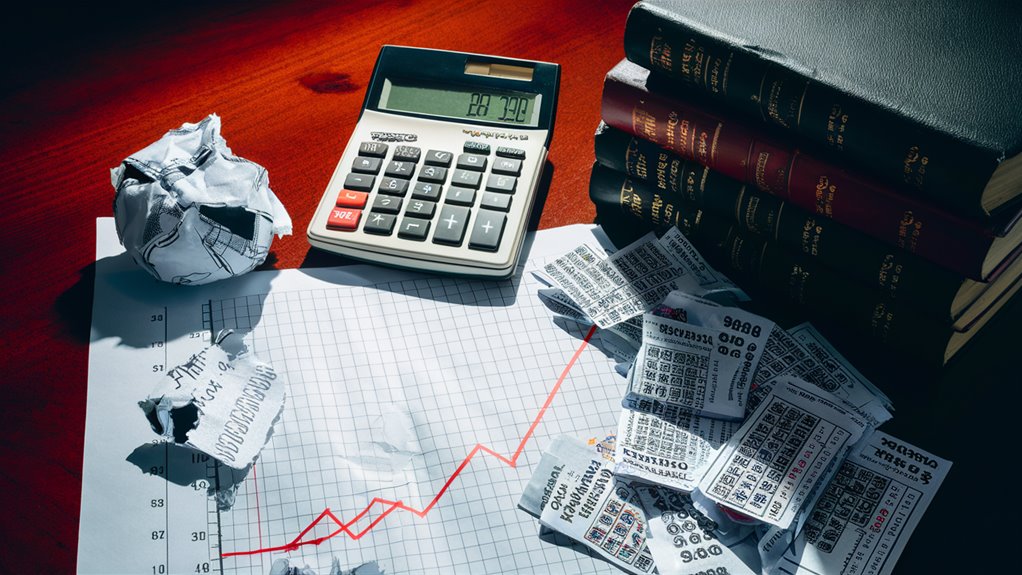
Why Sports Betting Leads to Money Loss
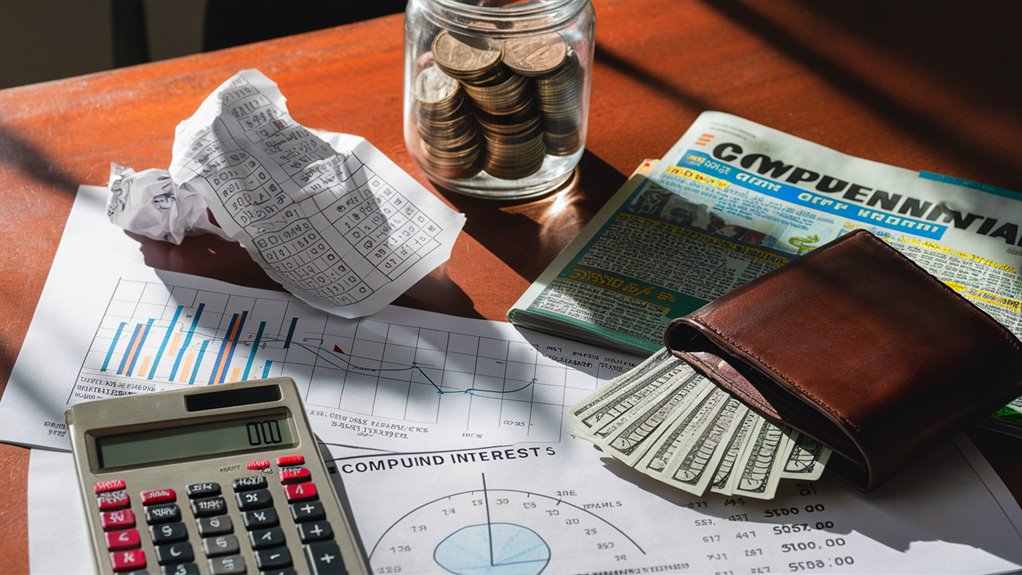
The Tough Math of Losing in Sports Betting
The math of sports bets points to a hard truth: making money in the long run is almost out of reach for most people. The set house take of 4.5-5% forms a math wall that shows a sure loss over time, with numbers showing 98% of players lose money if they keep playing.
The Odds Laid Out
Even the top pro bet makers seldom win over 55%. To just break even with normal -110 odds, players need to win 52.4% of the time – a mark hard for most to hit. For $100 bets, math says you’d lose $4,750 out of 1,000 bets.
Safe Money vs. Sports Betting
Old ways to invest money show better gains than sports bets. The S&P 500’s usual yearly gain of 8.8% is a clear split from the sure losses in sports betting. This math fact shows why putting money into markets, not betting lines, is more likely to grow your money.
Math Says No to Sports Betting
- House Take: 4.5-5% sure loss rate
- Win Rate Needed: 52.4% to just get even
- Top Bet Maker Win: Even the best can’t top 55%
- Loss Estimate: -$4,750 out of every 1,000 $100 bets
- Market Option: 8.8% usual yearly gain in S&P 500
What the House Edge in Betting Means
The Math Edge
The house edge is the math lead that places that take bets hold over play in any bet.
For sports betting places, this edge is often 4.5% to 5% of each bet. This means for every $100 bet, players can expect to lose between $4.50 and $5 over a long time.
How the Odds Stack Up
For a typical sports bet with -110 odds, you must risk $110 to maybe win $100. This gap makes the basic house take.
To get to even results, players need a 52.4% win rate – a percent way over just chance. Past bet info shows that even the top pro bet makers seldom keep win rates over 55% when long term.
The Add-Up Effect
The house edge builds up with each new bet, working like bad “interest” against the player’s money.
In a case of 1,000 bets of $100 each within a year, the house edge shows a likely $4,750 loss (figured at 4.75% edge). This math fact shows why sports betting can’t be a steady way to make money.
Key Points
- Usual House Take: 4.5-5%
- Roulette Tactics
- Break-Even Win Rate: 52.4%
- Normal Odds: -110
- Top Bet Maker Win Rate: ~55%
Mistakes Often Made in Betting Math
Using Numbers Right
The tie between house edge and number chances forms a tough field where mind tricks often mess up bet choices.
Three main wrong moves show up lots as big traps for those trying for winning bets.
Main Wrong Number Ideas
The Gambler’s Mistake
The gambler’s mistake is a big mix-up of chance not tied to other stuff.
Seeing a team lose five times in a row, a bettor might think a win has to come next. This wrong thought skips the real number fact that each game is its own chance, not changed by past games.
Hot Hand Mistake
The hot hand mistake is the other side of the gambler’s error.
While good vibes might change team mood, real number checks show that luck said to be “hot” often goes back to normal levels. Bettors thinking they can guess the next win off past good luck often end up let down.
Average Law Mix-Up
The average law mix-up often leads to bad bet plans. Many take short-term results as needing to match long-term odds.
But real chance theory says that true number spreads take lots, often thousands of tries, to show their real average.
How Mistakes Mess up Bet Choices
These number mistakes often stick in thinking, hurting clear mind moves in betting.
Knowing and pointing out these number mix-ups is key to making bet plans on real numbers, not wrong ideas.
Why Losing Bets Mess With Your Mind
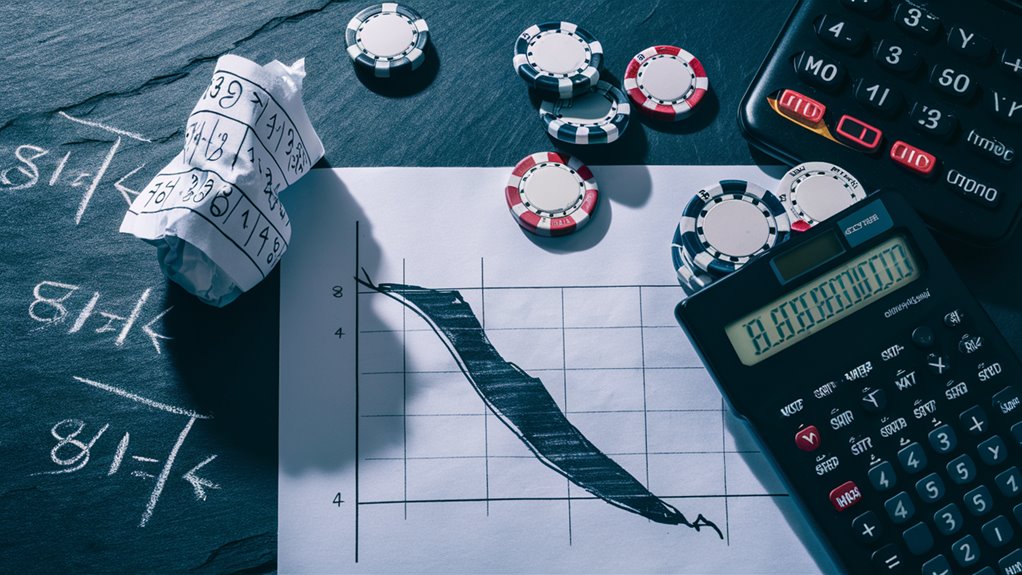
How the Brain and Body React to Bet Losses
Going after losses lights up brain paths just like being hooked on stuff, making a bad loop where bettors keep upping bets to try to get back money.
This stick-to-it bad move shows up in about 73% of problem gamblers, marking it a main part in betting addiction.
Stress Impact and Choice Moves
The body change from losing bets kicks off right away.
Cortisol comes out and serotonin goes down, making a big unbalance, hitting clear thinking skills head on.
In these heat moments, bettors are 31% likely to make fast bet moves.
Only seeing what you want makes this even worse, keeping mind on wins but not on losses.
Mind Bends in Betting Acts
Almost-wins in bets light up joy paths much like real wins, even though they are true losses.
This makes a fake feel of being in charge, which hits 68% of regular bettors who wrongly think they can sway random results through skill or plans.
This mix of mind bends with the gambler’s mistake starts a bad loop of more betting despite growing losses.
Main Mind Points:
- Chasing losses
- Body stress answer
- Hurt on making choices
- Mind bends
- Joy paths light up
Get the Real Odds in Sports Betting
Edge Check in Numbers
Sports betting number math shows the clear house gain set into bookie work.
Detailed checks say they keep profit walls between 4.5-7% on bet money, making a sure math loss for bettors.
This edge makes sure long-term gains for them while always lowering bettor money through sure number laws.
Odds You Need to Win
The typical -110 bet line needs a key 52.4% win rate to make money.
This line goes past usual win hits of pro bet makers, who often win 45-50% over much time.
Wide checks of bet data show only 3% of long-time bettors keep making money, showing the math blocks to constant winning.
Parlay Bet Math
Parlay bet odds set even tougher odds for bettors.
Two-team parlays may look good with 2.6:1 pay rates, but real win number checks show about 25% win chance, making a big 33% house edge.
Going through 500 bets shows even bigger likely loss counts with each more parlay leg, making steady money making through these bet plans not likely by math.
Long Money Hit of Sports Betting
Seeing the Clear Number Facts
Data-led checks show the deep money hits of sports betting over time.
Studies show a huge 98% of sports bettors end up with less money, with the usual one losing $1,100 each year through all bets, fees, and extra costs.
Adding Up Losses vs. Money Growth
The build-up of losses shows a big split from making money through investments. Think of betting $100 each week ($5,200 a year):
- Investment Plan: With a 7% market return
- 10-year growth: $74,000
- 20-year growth: $225,000
- Sports Betting Losses:
- 10-year losses: $22,000
- 20-year losses: $44,000 (not counting more prices going up)
Number Checks and Money Impact
Long bet patterns mostly show what looks like good times as number odd ones.
Deep checks of lots of bet records show a usual path: short wins make too much hope, leading to more bets and big money losses later.
When counting missed chances for other money making, sports betting shows a big bad hit on making money in the long run.
The math proof clearly says regular sports betting not 카지노사이트 just makes you lose money right away but also lets go of much future wealth through missed other chances.
Better Ways to Grow Your Money
Safe Index Fund Investing
Index funds are a main part of smart money plans, giving steady 7-10% yearly gains over a lot of time.
The S&P 500 index is a top choice, keeping a great 8.8% usual yearly gain since starting in 1957. This tested money way gives better risks and gains compared to chance-based money moves.
Smart Mix in Your Money Plan
Making a mix of money ways with index funds and bonds sets a strong plan to build wealth.
State bonds give a steady 2-5% yearly gain with little bad chances, while company bonds show better gains of 4-7% each year.
This way uses the power of money building on money, making more growth without the full loss risks tied to betting.
Other Money Ways
Real Estate Money Trusts (REITs) show up as strong tools to build wealth, making big 10-12% yearly gains through both property value going up and money shared.
For those looking for more gain chances, person-to-person lending spots offer good 5-9% returns while spreading risks over many loan tries. These watched money options bring clear and likely results compared to chance-based options.
Main Money Upsides:
- Tested track of long gains
- Checked market spots
- Pro watching and clear views
- Chance to spread risks
- Potential for money to grow on its own
- Ways to make money without working
